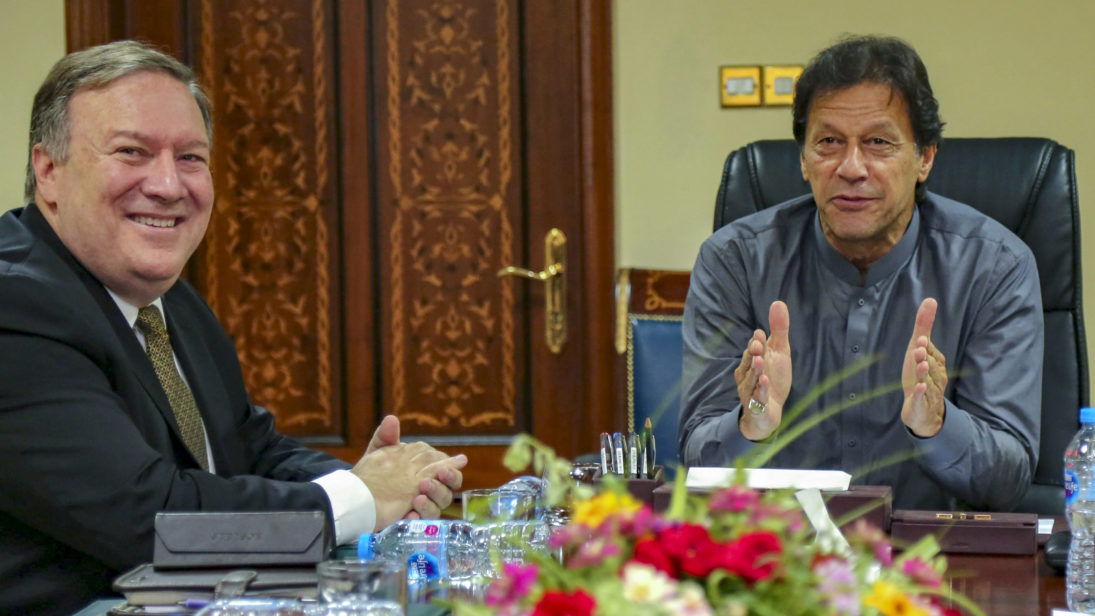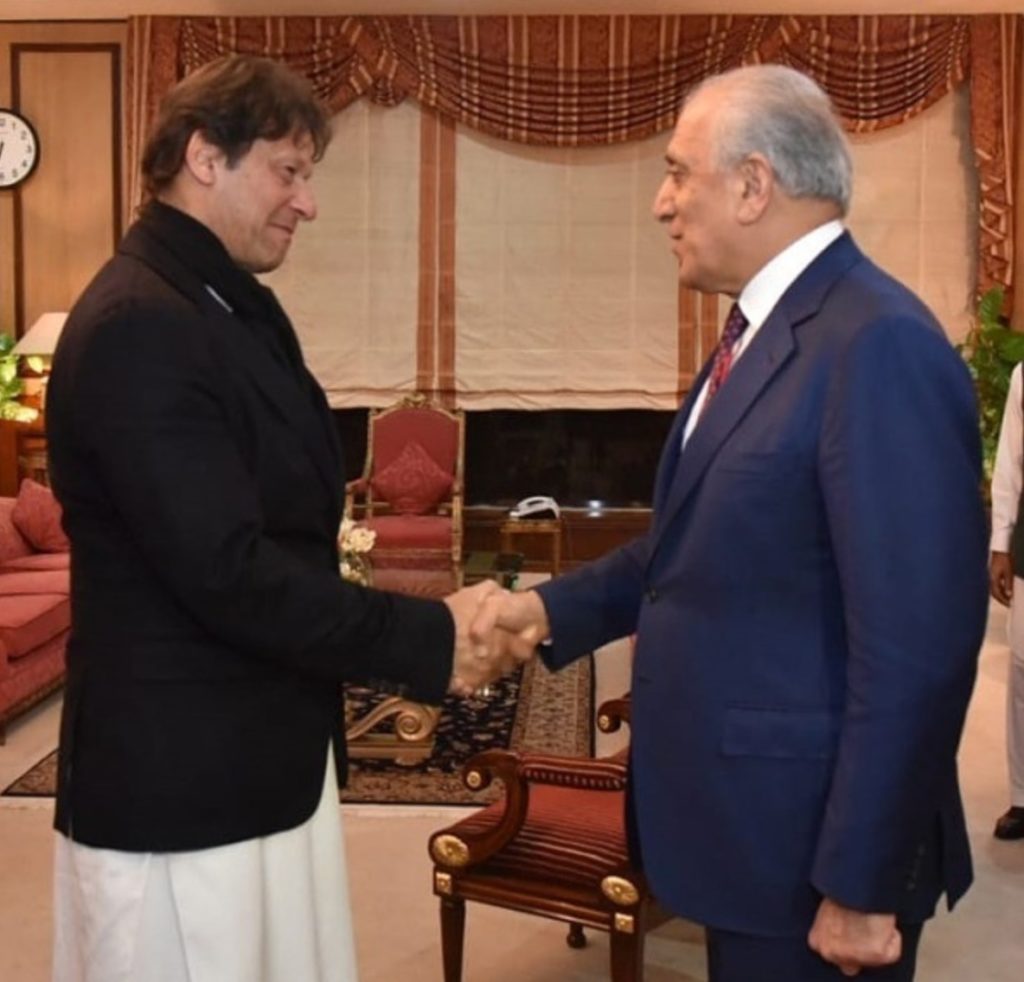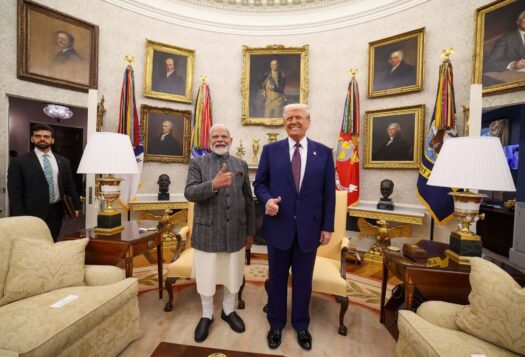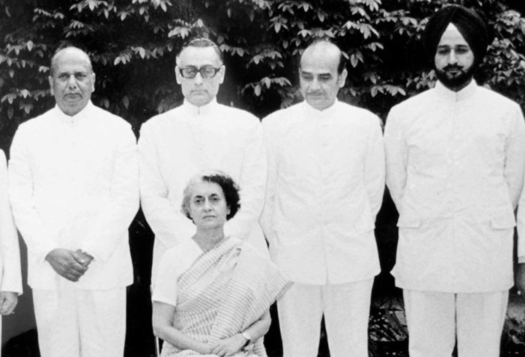
The Afghan Taliban and the United States are reportedly close to finalizing a deal to end America’s longest war. After weeks-long negotiations, Washington and the Afghan Taliban have reported progress, indicating a serious effort by both sides to achieve peace and stability in Afghanistan. While a number of issues are still to be worked out, including the nature of the withdrawal of U.S. forces from the country and the Taliban’s refusal to talk to the Afghan government, Washington’s withdrawal from Afghanistan is imminent.
Under these circumstances, Washington’s existing engagements with other countries in the region, including Pakistan, are also expected to undergo significant changes. The withdrawal of U.S. forces from Afghanistan, which may very well conclude before the 2020 U.S. presidential elections, is likely to have long-lasting implications for the Pakistan-United States bilateral relationship.
On-again, Off-again: Pattern of Pakistan-United States Cooperation
As many scholars have argued, the United States-Pakistan relationship has been defined by cycles of engagement and disengagement. Historically, Islamabad has been eager for U.S. diplomatic and military support and maintained terms of engagement that secure its position as an ally of Washington. By and large, Islamabad has done this to fend off security threats that it continues to perceive from India. However, while Pakistan has entered into security partnerships with the United States at various junctures, it has never compromised its key security interests, such as its nuclear weapons program or a controversial security policy that has at times fueled regional instability.
Pakistan’s main cycles of cooperation with the United States have been driven by, as scholar Kanishk Sathasivam describes, “a major international event that shocks American foreign policy and forces Washington to seek out Islamabad as an ally.” However, once such a crisis subsides, the United States has tended to sideline Pakistan. For instance, the Soviet Union’s political and military intervention in Afghanistan during the 1970s and 1980s provided an opportunity for Islamabad and Washington to engage in cooperation based on a mutual threat to stop Soviet expansionism. However, when the Soviet Union’s threat in Afghanistan vanished during the late 1980s, so did Pakistan’s utility as an ally for the United States. Thus, Washington distanced itself from Islamabad, causing a sense of betrayal in Pakistan.
Today we are witnessing an analogous scenario. After the September 11 attacks in the United States, Islamabad was again entreated to cooperate with Washington. Subsequently, Pakistan became the most important strategic partner of the United States in Afghanistan, a relationship that has continued for almost 17 years. However, Pakistan has not fully complied with the United States’ ask to do more against the Taliban and the Haqqani Network, both because it considers these groups as critical to its policy in Afghanistan and because it worries about blowback if it takes action against them. As a result, though Washington and Islamabad continue to communicate regarding continued U.S. presence in Afghanistan, Washington appears to be moving towards another phase of disengagement with Islamabad as negotiations with the Taliban in Afghanistan near an end.

Post U.S. Withdrawal: Consequences for U.S.-Pak Relations
After the United States’ impending exit from Afghanistan, the rationale for the Washington-Islamabad relationship will start to unravel. The United States will no longer need Pakistan to support its counterterrorism efforts in the region and thus, Pakistan is likely to begin losing leverage and coverage in Washington’s policy circles. However, unlike the previous periods of disengagement between the United States and Pakistan, any future disengagement will not hurt Pakistan as much economically or militarily. Firstly, China has surpassed the United States as the largest foreign direct investor in Pakistan, due its China-Pakistan Economic Corridor project. Secondly, while the United States has already cut most military aid to Pakistan, Islamabad is working to diversify its sources of military support beyond Washington. For instance, Pakistan’s army is now relatively less dependent on U.S. arms and has been working with other countries like China and Russia to build military hardware to fulfill its security needs. According to a Financial Times report, “the shift started in the last few months of the Obama administration when Congress blocked the sale of eight F-16 fighter jets to Pakistan.” Moreover, in response to the United States’ recent decision to shut down training programs for Pakistani military officers, Islamabad has signed an agreement with Moscow to train its military officers. Thus, Pakistan has begun preparing for a future without the prominent support of the United States.
The Way Forward: Case for Cordial U.S.-Pak Ties
Washington’s military and economic utility for Pakistan may subside gradually. However, Pakistan would at least want a functional relationship with the United States so that it is not isolated diplomatically at U.S.-led global institutions. Similarly, Washington’s disengagement from Islamabad is unlikely to serve its nonproliferation interests—its best bet is to maintain ties with the national security establishment that guards Pakistan’s nuclear program. Thus, the two countries need to engage with each other, even if minimally, to keep a working bilateral relationship.
***
Image 1: U.S. Department of State via Flickr
Image 2: Prime Ministry of Pakistan/Handout/Anadolu Agency via Getty Images


